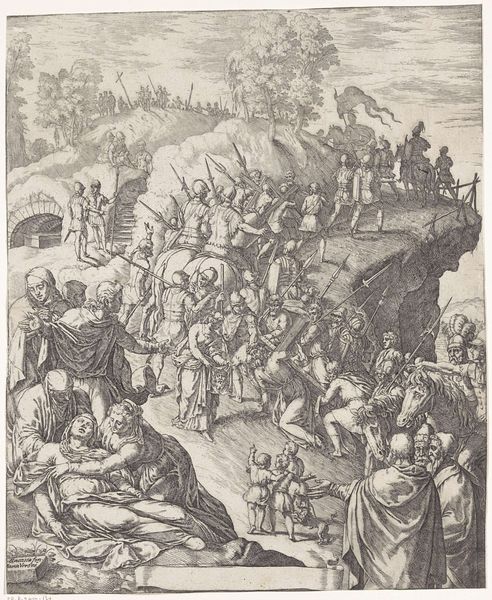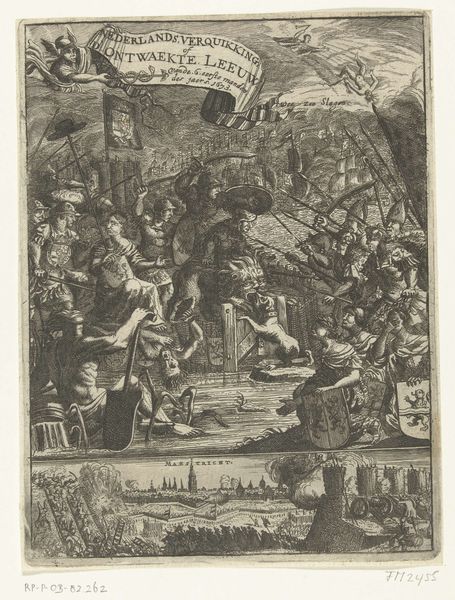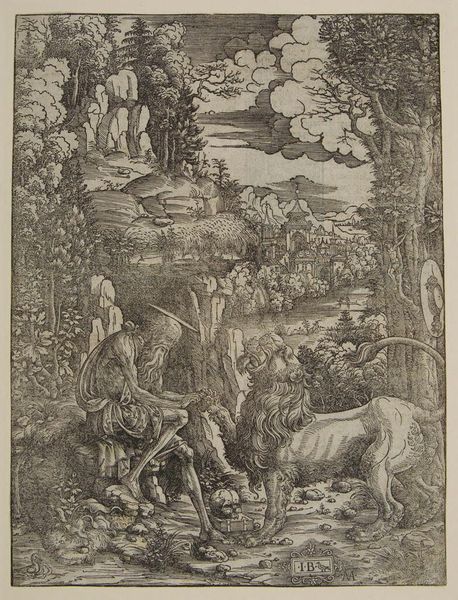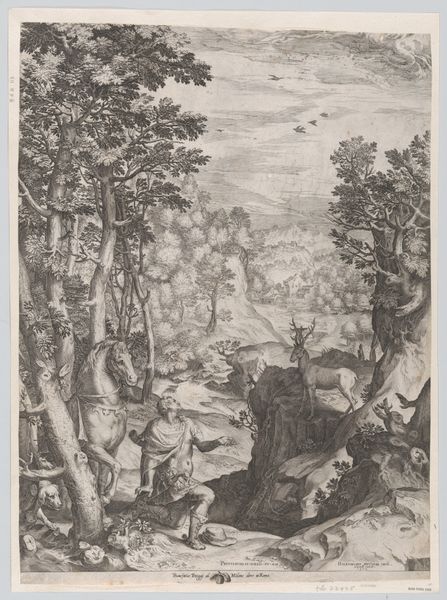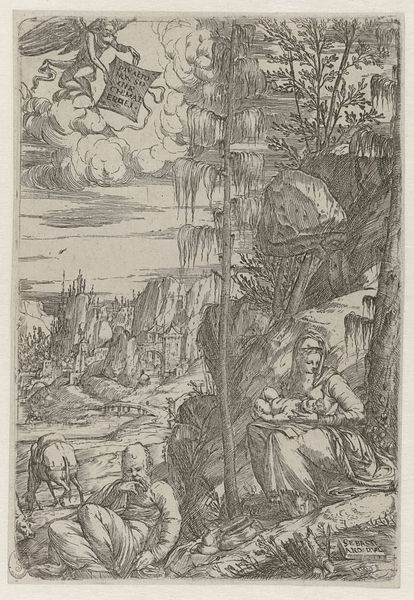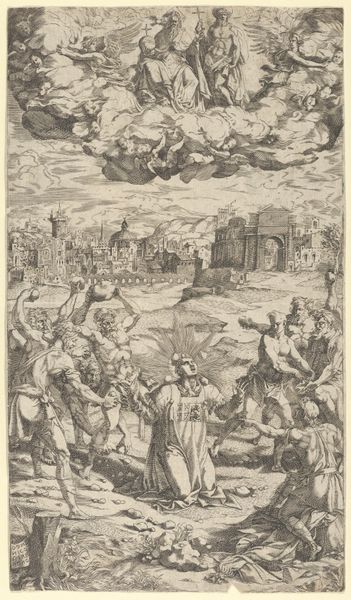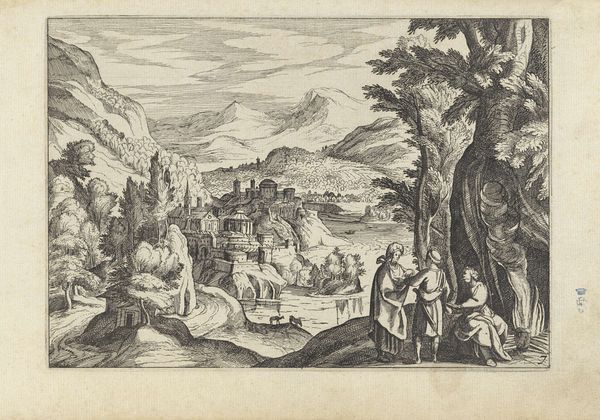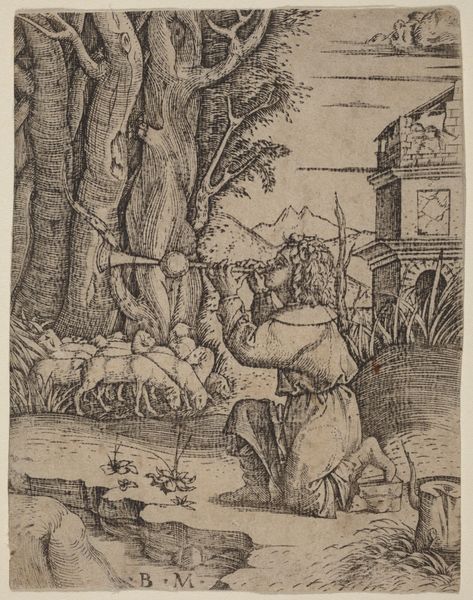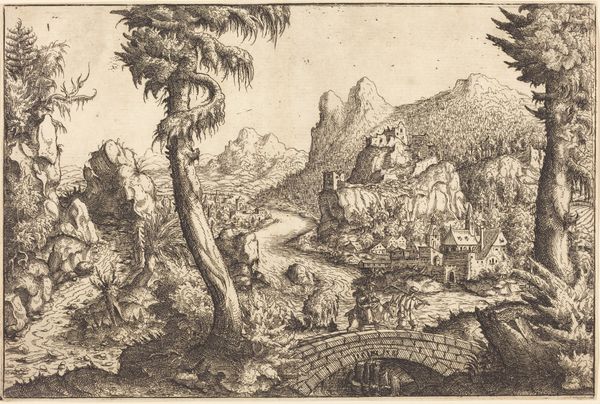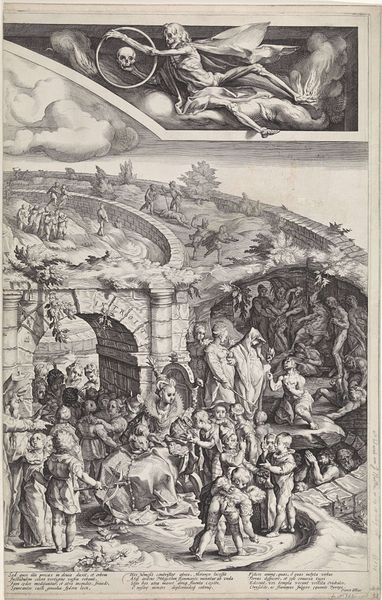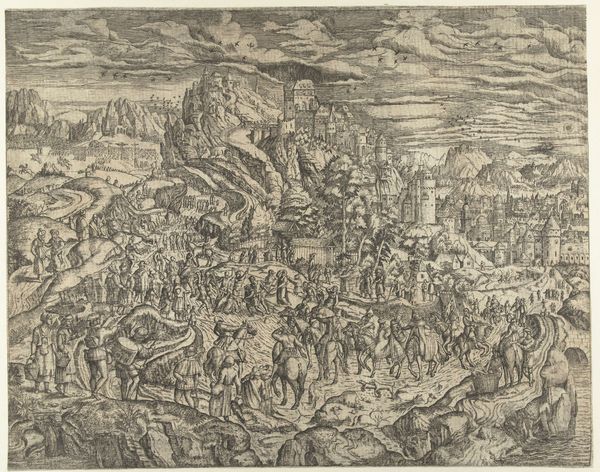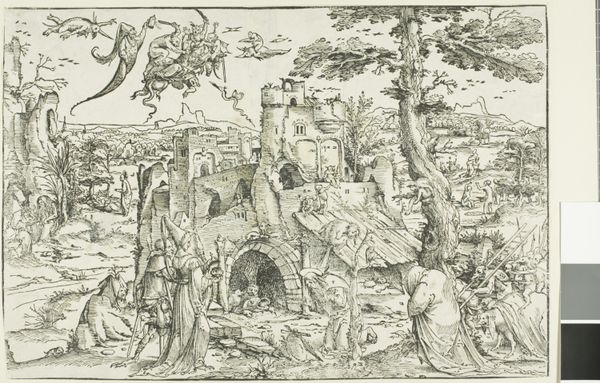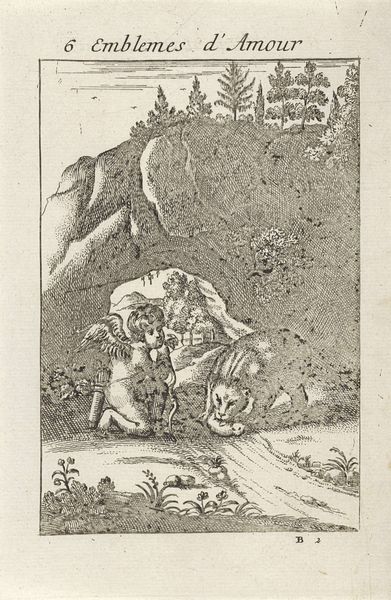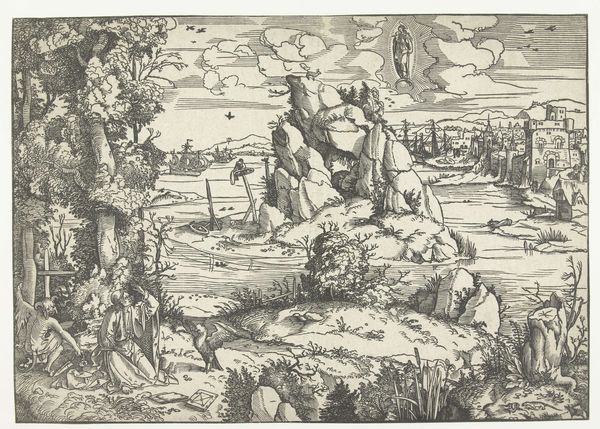
drawing, ink, engraving
#
drawing
#
allegory
#
narrative-art
#
baroque
#
pen drawing
#
pen illustration
#
pen sketch
#
figuration
#
ink
#
pen work
#
history-painting
#
engraving
Dimensions: height 739 mm, width 464 mm
Copyright: Rijks Museum: Open Domain
Anton Meitingh created this engraving called ‘The Temptation of Saint Anthony’ sometime in the first half of the 17th century. The image depicts the saint being tormented by demons in the Egyptian desert. This image is fascinating as an insight into popular beliefs about the demonic realm in the Netherlands at the time. In it, we can observe a complex relationship between the religious understanding of good and evil, and the influence of folklore. Note the chaotic composition and nightmarish figures that seem to be inspired by Hieronymus Bosch. Anthony's faith would have served as an example of resistance against social disruption. The image could be intended to reinforce established norms against emerging popular beliefs or behaviors. Historians can analyze this work to understand the intersection of religion, folklore, and social control in the Netherlands. Research into the printing industry, religious history, and popular culture would shed further light on its meaning.
Comments
No comments
Be the first to comment and join the conversation on the ultimate creative platform.
